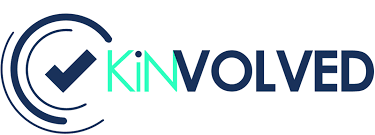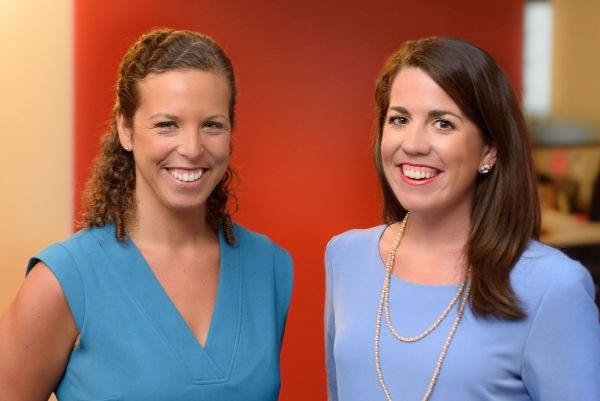2015 Grand Prize Winner
Kinvolved
Merging Technology and Family for Student Success

Alexandra Meis and Miriam Altman won the 2014 EBPC Grand Prize for their business plan for Kinvolved, a New York-based startup aiming to improve student attendance and reduce chronic absenteeism. Catalyst recently sat down with these two dynamic entrepreneurs to discuss their journey and the advice they have for others pursuing their dreams in the education ecosystem.

Catalyst: How did you come to enter the EBPC?
Meis: Miriam and I met in grad school at NYU Wagner. With my background coordinating patient care for children at an Autism Treatment Center and her experience as a public high school teacher, we both recognized the importance of family engagement in any program seeking to alter student behavior.
Altman: Our common experiences and shared passion to make a difference drove us to study the problem of absenteeism and develop a framework for a solution and a model. In 2012 we entered and won a Fels Institute policy competition at Penn. With the funding we received, we were able to launch a Kinvolved pilot. This, then allowed us to enter – and eventually win – the EBPC.
Catalyst: Can you tell us more about your enterprise?
Altman: Kinvolved combines technology — our software tool KiNVO — and human interventions to recognize external factors affecting student attendance and then aims to change behaviors to increase student success.
Meis: Traditionally, parents only hear from school when their child is absent or late. While Kinvolved schools provide that information, we couple it with encouraging positive updates on attendance and behavior, translated for two-way communication in over 65 languages. For example, a parent speaking Haitian Creole gets both attendance information and positive updates by text message in their own language and can write back. This early engagement helps reduce absenteeism.
Altman: Early on we recognized that technology alone will not solve our deepest educational problems. Therefore, when a school district signs with Kinvolved, we provide teachers and administrators with coaching and professional services focused on developing relationships with families and using the KiNVO software empathetically to complement the data analysis. Our coaching helps shift the narrative from merely recording the existence of chronic absenteeism and tardiness to understanding why a student is late to period one every day so that the educator can work with the family to make a change to address the underlying cause.
Catalyst: What results are Kinvolved schools seeing?
Altman: According to our impact studies, attendance at Kinvolved schools improved at a rate 13 times better than peer schools within the same districts, even though Kinvolved schools serve students at a higher risk for chronic absenteeism.
Catalyst: What role has the EBPC played in the Kinvolved story?
Meis: The win came at a time when it was proving difficult to find funding and being endorsed by the recognized brands of University of Pennsylvania and Milken has been invaluable. We also appreciate the workshops, networking opportunities, feedback and support from the Penn staff, and are particularly thankful to Bobbi Kurshan, who oversaw the competition and has since given letters of support for broadening our endeavors.
Altman: In 2014 Kinvolved was executing a pilot program with 20 schools around New York City. Today we work with 150 New York City schools, and in the past 18 months have grown beyond New York and are working in seven states and the District of Columbia. We’re looking to double the number of students we support across the country in the next year. The more students we can reach, the greater impact we can have. In November 2018, we raised $1.54 million in a seed round led by the Draper Richards Kaplan Foundation, a great step in helping us reach our goals.
Catalyst: What advice would you give to aspiring education entrepreneurs?
Altman: Develop a business model early and establish product value through monetary exchange rather than offering your product for free and figuring out the revenue value later.
Meis: True systemic change in schools and districts takes time. It’s our responsibility to make sure we strive toward ensuring that every child, regardless of his or her zip code, has an equal opportunity to education and a chance at a high school graduation.
Learn more at Kinvoled.com